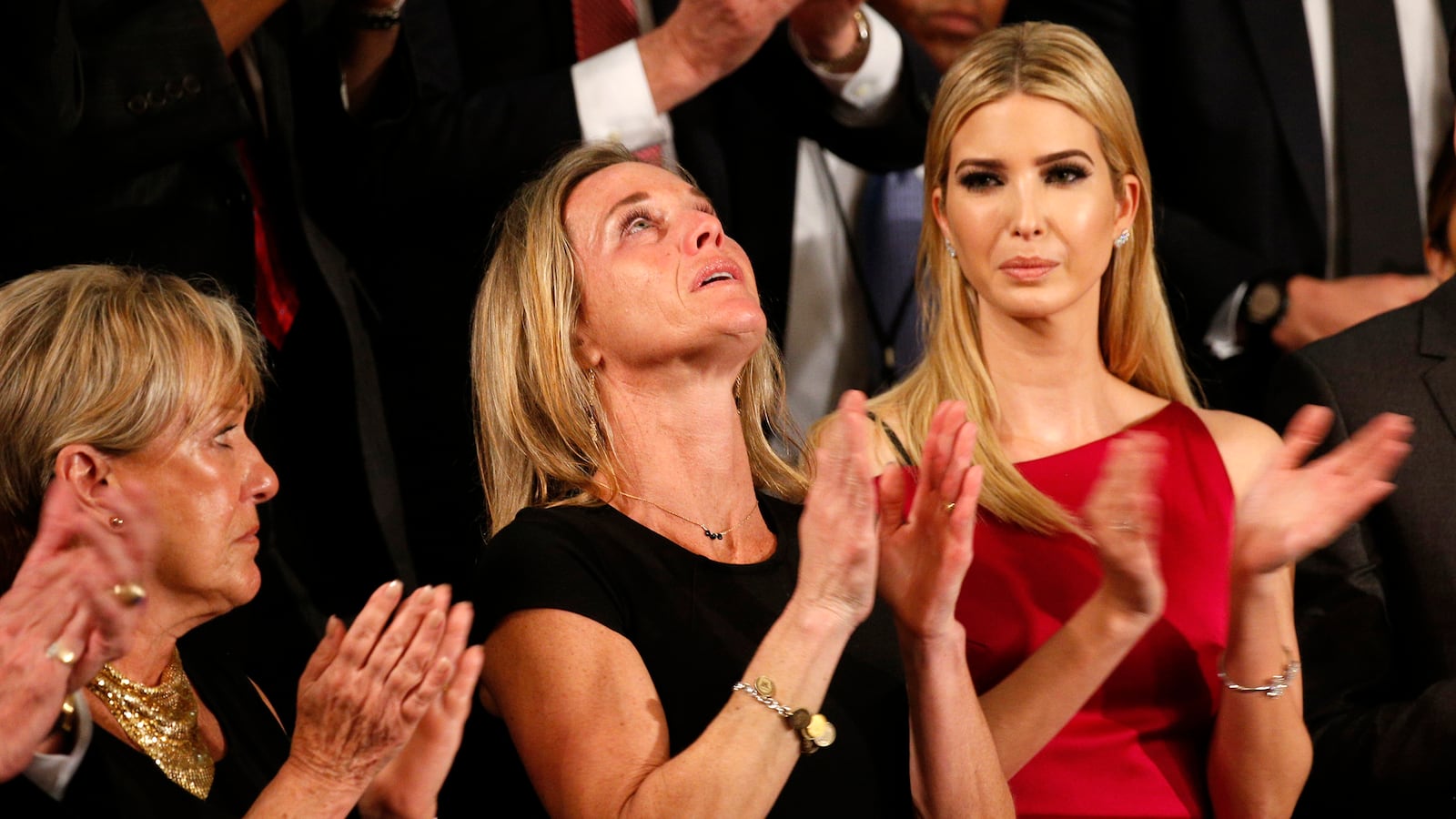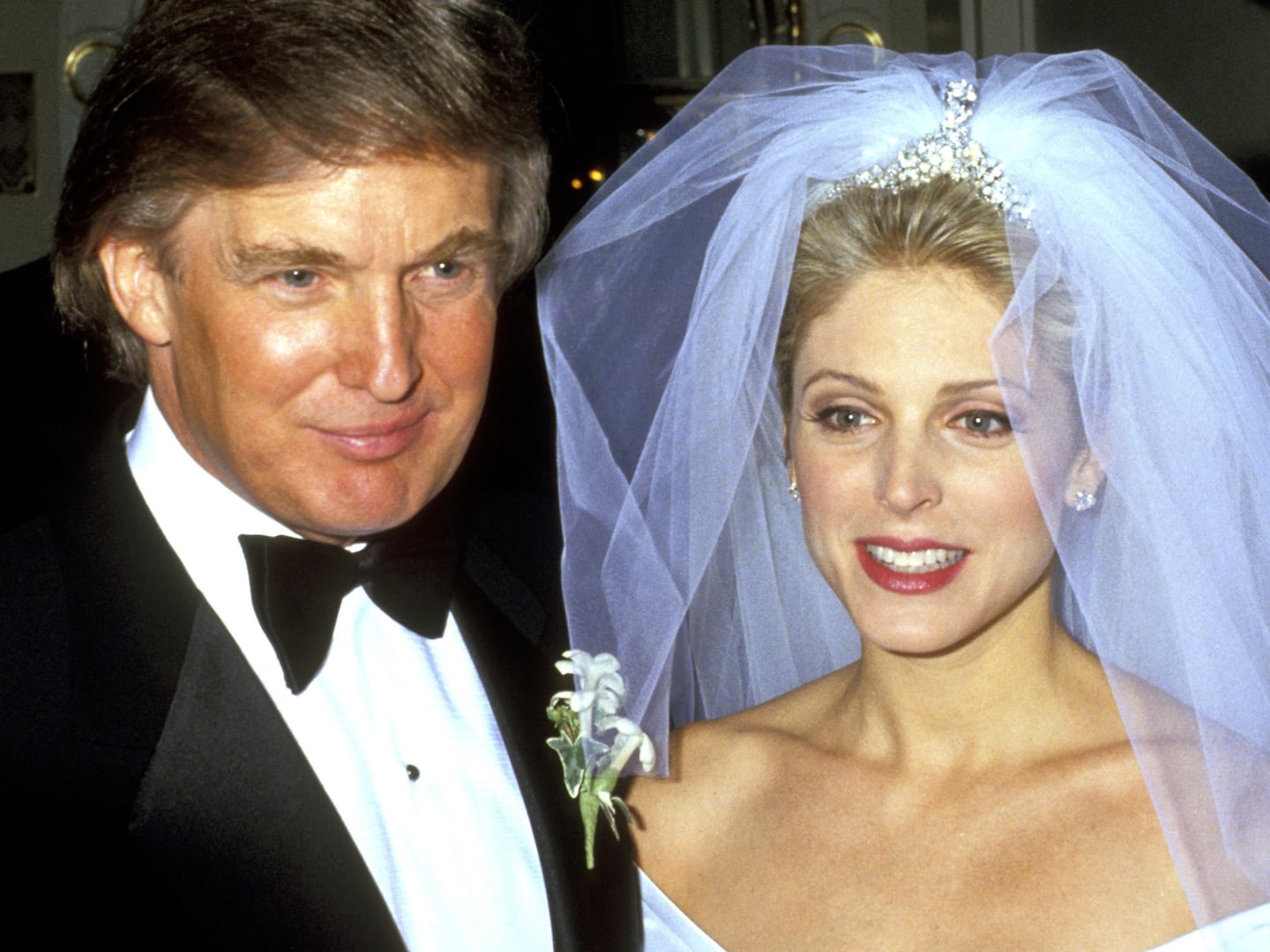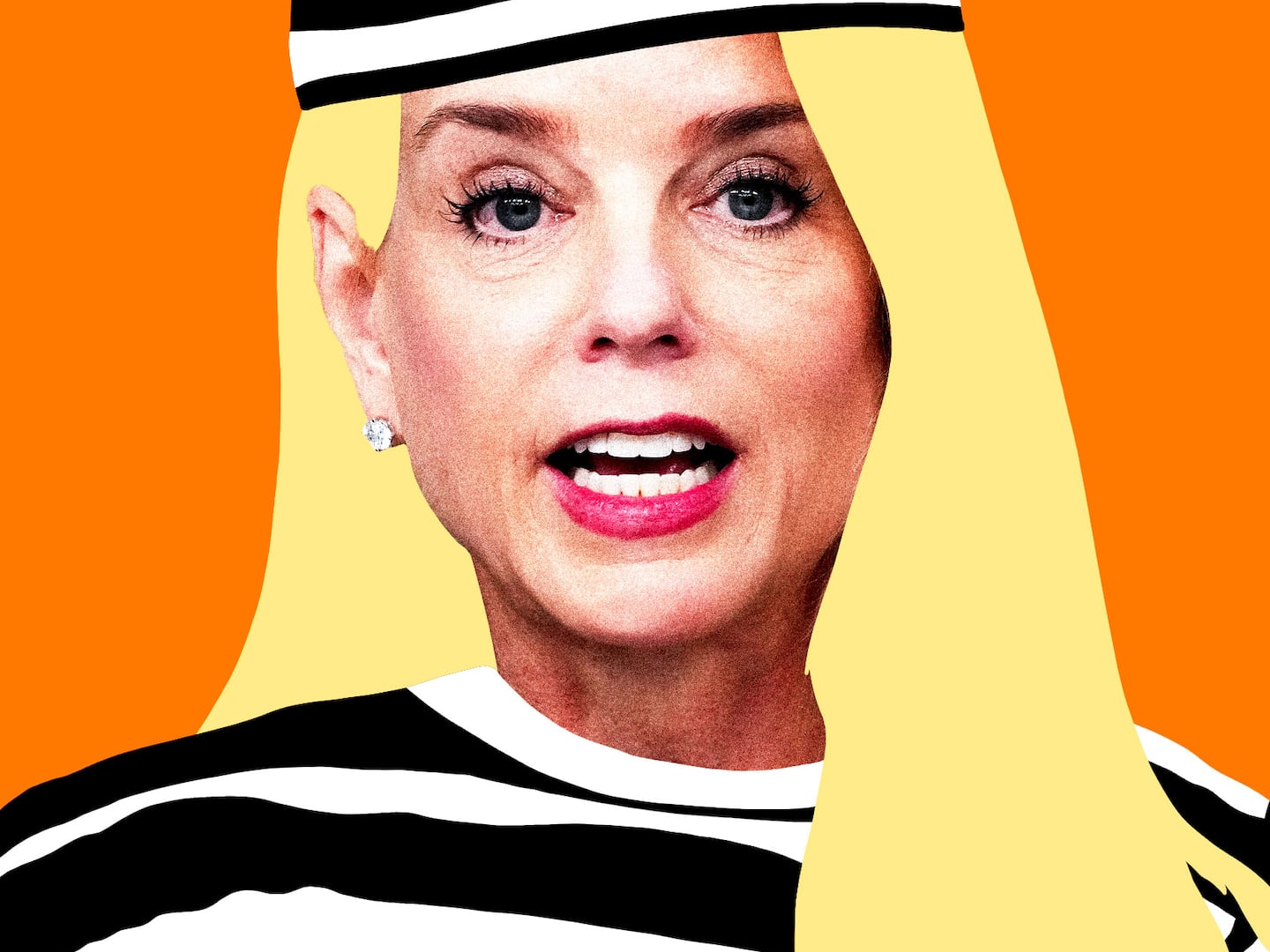Congress is so fractured that Democrats and Republicans can unanimously agree on only one thing: respect for widows.
Carryn Owens, the wife of Navy SEAL Senior Chief William “Ryan” Owens, who died in the ill-fated Yemen raid, received the most sustained and bipartisan applause during President Donald Trump’s address to a joint session of Congress—more even than the initial standing ovation for the president’s entry.
“For as the Bible teaches us, there is no greater act of love than to lay down one’s life for one’s friends. Ryan laid down his life for his friends, for his country, and for our freedom—and we will never forget Ryan,” Trump said.
Owens, sitting next to Trump’s daughter Ivanka in the second-floor gallery overlooking the House of Representatives, looked to the heavens and wept as the entire chamber erupted in applause, lawmakers turning around to face her.
“Ryan’s legacy is etched into eternity,” Trump said—and the sustained appreciation from the audience drew his attention, prompting a spontaneous, ad-libbed line: “Ryan is looking down right now, you know that, and he’s very happy because I think you just broke a record.”
But the House and Senate are so divided in the age of Trump that Democrats and Republicans would only stand united when the president invoked the dearly departed—Democrats also stood unanimously for the wife of late Supreme Court Justice Antonin Scalia.
These may have been the only genuinely unifying and heartwarming moments of the night.
From within the House of Representatives, it truly felt that the president was facing a level of resistance not seen from an opposition party in close to a decade.
Long gone are the optimistic moments of “hope and change” that characterized President Barack Obama’s campaign and early time in office. Even in the last years of the Obama presidency, Democrats and Republicans put on a show of bipartisanship: Many lawmakers would find a partner from the opposite party to sit next to during the State of the Union Address.
Not so this year: Democrats sat to Trump’s right, while Republicans sat to Trump’s left. The division between parties was palpable as time after time, the left side of the audience would cheer and applaud at a campaign-style line from the president, while the right side sat stone-faced.
The group that most persistently refused to indulge the president’s suggestions wore white—more than 40 Democratic women who coordinated their outfits in a nod to the suffragette movement and as a subtle reminder of the way Trump has spoken about and treated women.
During the first of several annual speeches he will deliver to Congress, Trump asked Democrats in the audience to work together with Republicans on various proposals: on immigration reform, on dismantling Obamacare, or on an education bill. They didn’t budge at these supposed olive branches.
In fact the most memorable way that Democrats made their presence known was in their shock and surprise. When the president announced the creation of a new office called VOICE—Victims of Immigration Crime Engagement—which will track crime by immigrants, Democrats in the audience audibly groaned and gasped at the idea. When Trump said he was in the process of “draining the swamp,” Democrats laughed at him—they have been criticizing his Cabinet’s links to Wall Street and billionaires for weeks already.
And when Trump began wrapping up his speech, telling the audience that “the time for trivial fights is behind us,” Democrats began guffawing and pointing at him—a man who has picked countless online Twitter fights with celebrities and media outlets who have criticized him.
The dissent made an obvious point: These States haven’t been less united in years. Democrats don’t want to work with Trump on hardly anything, except perhaps infrastructure spending and paid family leave, which the president will have a hard time selling to his own conservative base. Gridlock is coming to the U.S. Congress.
In a final slight, and a nod to their intentions, Democrats barely let the president finish his speech before bolting to the exits. The moment Trump delivered his closing line, the right side of the room jumped and began to flow out, even as Republicans continued to applaud.
“Thank you, God bless you, and God Bless these United States,” Trump had concluded.
No word in the speech felt less accurate in the president’s first address to Congress than that second to last word: ‘United.’






